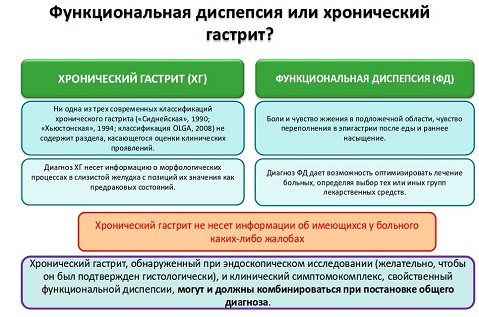Mikheeva Ekaterina Head of the legal department of the Assistance Service for Conscripts in St. Petersburg
62
watch the video
It is impossible to unequivocally answer the question of whether people with gastritis are drafted into the army - this is a specific disease with a sufficient number of forms and types, each of which corresponds to its own fitness category. In this article I will tell you whether it is possible to get a military ID for gastritis, and I will explain how to confirm the diagnosis for the military registration and enlistment office.
Army and gastritis
Do they take you into the army with gastritis? The answer depends on the nature and degree of pathological changes in the body. You can say yes and no. Let's look at the situation in more detail.
What does the law say on the issue of fitness?
The issue is regulated by a special Regulation on military medical examination. According to this document, diseases of the digestive and gastrointestinal tract are defined in Article 59.
Gastritis is considered among other pathological processes. Therefore, it is more than possible to get some relief, and even exemption from service. It all depends on the activity of the disease specifically in you.
Article 59 of the list of diseases of the digestive system
What categories of suitability for conscription are assigned?
If the ulcer heals, do they take you into the army?
Often, peptic ulcer disease is provoked by a special type of bacteria - Helicobacter pylori, which parasitizes the gastric mucosa and, by its own existence, leads to its damage. During the inflammatory process in the stomach, gastritis or duodenitis is formed with increased secretion of gastric juice. The irritating effect of hydrochloric acid leads to the formation of ulcers over time.
The danger of the disease lies in the likelihood of an erroneous diagnostic conclusion when a peptic ulcer is confused with other disorders of the digestive system, for example, pancreatitis or gastroduodenitis. With such diagnoses, conscripts are drafted into service. There, when certain factors are formed, the disease develops intensively and a severe exacerbation occurs.
With proper treatment, the ulcer goes into remission. The wound itself is scarred, but it remains forever on the surface of the stomach. The ulcer may worsen or appear in a new place, therefore, with such a diagnosis in the anamnesis, a conscript is not accepted for service, but is sent to the reserve.
A place in the stomach that has become scarred will no longer be able to carry out its own duties. That is, the well-being of a sick patient will differ from the well-being of a healthy one, even if at the moment the patient does not have any particular problems with his health.
Category B for gastritis
Limited fit for military service. This means that you will only be called up in the event of hostilities. And then, with a high probability, the service will be non-combatant.
However, you can receive a category only if several important conditions are met. The disease must have the following characteristics:
- Violation of secretory function.
- Frequent exacerbations.
- Disturbances in the process of eating with a proven decrease in body mass index.
- Repeated hospitalizations as a method of correction.
- Failure of initial hospitalization.
There are a lot of factors. Let's look at them one by one.
Violation of secretory function.
Indicates that the stomach is producing too much juice (high acidity). Or the acid is not synthesized enough for the normal digestion process (gastritis with low acidity).
Both options are accompanied by typical symptoms of the pathological process:
- Abdominal pain.
- Disorders of digestive processes.
- Discomfort after eating.
- Heartburn.
- Belching with sour contents.
- Vomiting and nausea.
- Weakness.
- Unpleasant taste in the mouth.
And so on.
Violation of secretory function is determined by performing an FGDS with examination of a sample of gastric juice. The procedure is mandatory if you plan to be released due to the named diagnosis.
Frequent exacerbations.
The situation does not say exactly how much. Consequently, this is an evaluative category and arbitrarily frequent relapses of the inflammatory process can be subsumed under it. We need to put pressure on the frequency of visits to medical institutions.
It is recommended to go to the doctor at least once every 2-3 months to document the fact of an exacerbation. This will make life a lot easier.
Decreased body mass index and impaired eating.
The position indicates a BMI of 18.5-19 or less. The indicator is calculated using a special formula.
It looks like this: Weight in kilograms / patient’s height (meters) squared
Example. The young man weighs 75 kilograms and is 185 cm tall. It turns out 75 / 1.85 * 1.85. Equal to 21.91. Approximately 22. Anything equal to 18.5-19 or less fits the formal criteria of the pathological process. If other points are present, you can be released based on the diagnosis of gastritis.
Repeated hospitalizations.
It is important that the hospitalization is not the only one in a year. At the same time, another formal criterion is put forward. This is the length of stay in the hospital. As the Regulations state, at least 2 months of treatment in a hospital.
One more requirement is being put forward. This is the ineffectiveness of the initial hospitalization. That is, a situation in which the patient could not be cured of gastritis at one time. This phenomenon can be confirmed using medical documentation.
If all criteria are met, you can count on receiving fitness category “B”.
Gastroduodenitis and bulbitis
Another common disease among modern conscripts is gastroduodenitis - inflammation of the mucous membrane of the stomach and duodenum. It also goes up to Article 59.
Expert opinion
Davydov Dmitry Stanislavovich
Deputy Head of the Military Commissariat
With this pathology, as with gastritis, everything is also not simple. It has many forms, varies in depth of development and can occur in varying degrees of severity.
In particularly advanced cases, gastroduodenitis occurs with severe pain and frequent exacerbations. In addition to the stomach and intestines, the pathological process may involve the liver, pancreas, and gall bladder.
As a rule, gastroduodenitis does not give a young man exemption from the army. If the disease is mild with rare exacerbations and minor dysfunctions of the digestive system, then the conscript receives category “B-3” and is sent to repay his duty to the Fatherland.
If an exacerbation begins during service, he sends you to the hospital.
Gastroduodenitis may be the reason for assigning a category “B” to a young man and sending him to the reserve, but for this the disease must be severe and accompanied by functional disorders, frequent exacerbations (at least twice a year) and significant weight loss (BMI - below 19) . As you might guess, to assign the desired category, a conscript should try: to provide evidence of long-term and not very effective treatment, frequent visits to the doctor and multiple hospitalizations.
The situation is similar with bulbitis, a type of gastroduodenitis in which inflammation of the duodenal bulb occurs. This disease can also occur in different forms and with varying degrees of severity.
In order to get at least a deferment, a conscript with a bulbitis must prove to the members of the commission the severity of his situation: the presence of significant violations and frequent relapses. This is not easy to do even if you have the necessary documents.
In the best case, the young man will be sent for treatment and then drafted into the army.
Chronic gastritis and the army. Category B-3
Good with minor restrictions. Accordingly, those with chronic gastritis are recruited into the army

According to the Regulations on Military Medical Examination, the category is assigned to patients with chronic gastritis. Provided that the patient suffers from rare exacerbations. Relapses do not have to meet the above criteria. Otherwise, you need to assign a different category.
This means that a young man can serve, but with certain concessions. For example, by type of troops.
The description in the Regulations does not give any accuracy to the situation. However, all forms of the disease that do not meet the criteria for Category B may be considered to be eligible for Category B.
Chronic inflammation of the stomach
Whether a guy will serve his homeland in the presence of a chronic form of pathology also depends on various factors, for example:
- on the frequency of relapses,
- on how positive the treatment is,
- does the future conscript have a medical card with records of stomach complaints?
In most cases, chronic gastritis is not a compelling argument for exclusion from military service. This is often due to the fact that in adolescence such illnesses are triggered by eating fast foods, chips, fatty and smoked foods. As you know, the army adheres to a balanced diet, which will benefit a future conscript with gastritis.
Without any restrictions, a conscript will be fit for military service in 2020 in the following cases:
- Body weight corresponds to height.
- The guy now has no records of complaints about the disease for the last 2 years.
- The patient had never been hospitalized due to gastritis.
- Attacks and exacerbations of gastritis are rare.
When determining the suitability category, the following indicators are also referred to:
| Factor | Suitability category |
| Chronic gastritis rarely makes itself felt | B |
| Gastroduodenitis with frequent relapses | IN |
| The conscript was in the hospital with chronic gastritis for at least 8 weeks | IN |
| Often recurrent chronic gastritis in severe form with dysfunction | G |
In other cases, with chronic standard gastritis, the conscript is fit for service without any restrictions. It is worth noting that you will not be accepted into the army under a contract if you have chronic gastritis.

Photo: Types of gastritis
Military deferment for gastritis in category G
In this case, the young man is given a deferment from military service .
As a rule, a category is assigned if it is not clear what form of pathological process is occurring. For example, when the primary diagnosis is made. The deferment is provided for 6-12 months.
During this time, it is necessary to study the dynamics of gastritis, an inflammatory phenomenon. Then the commission draws conclusions and finally assigns a suitability category.
The issue of health status must be resolved under the supervision of a doctor. Preferably long before the draft board. The chances of being exempt from military service depend on this.
Do they take you into the army with a duodenal ulcer?
An ulcer that forms in the duodenum is a chronic disease that contributes to the formation of ulcerative lesions on the mucous walls. Often, this disorder appears in males, and their age period is rapidly getting younger, and a citizen of military age is already capable of suffering from peptic ulcer disease during periods of exacerbation.
Conscripts do not always have a clear understanding of the characteristic features of the disease, since a duodenal ulcer has identical symptoms to gastroduodenitis or irritable bowel syndrome. In any case, when passing a commission at the military commissariat, it is necessary to insist on an additional examination and confirm the current diagnostic conclusion with the help of a new examination.
Note ! _ According to current legislation, if the presence of duodenal ulcer is proven, regardless of whether it is in an acute form or the disease is in remission, the conscript is considered to be of limited fitness. A military document is issued for him and he is sent to the reserve.
As practice shows, if a conscript has documents from private medical institutions, then they are certainly taken into account and included in the file, but in order to be finally released from military service, this will need to be confirmed in public medical institutions.
The subsequent fate of the conscript citizen will depend directly on their conclusion. If at the moment the peptic ulcer is in a state of prolonged remission, then during the examination a post-ulcer scar will be found, which will be considered indisputable evidence of the existing disease.
Algorithm of action in case of illness to obtain a legal decision of the commission
How to act correctly to increase the likelihood of exemption from military service? There is a certain algorithm.
Step 1. Contact a gastroenterologist. You can do it at your place of residence or visit a paid specialist. Carefully describe your complaints, do not hide anything. Complete initial examinations. Including FGDS, x-ray, if necessary. Get tested.
Step 2. Systematically visit your treating specialist. It's better than the same thing because it knows your body better. And not on paper, but in reality. How often to go? It is better to see a doctor once every 2-3 months. Be sure to make complaints about your health condition.
Step 3. Provide documentation to the military registration and enlistment office. Upon initial military registration and upon reaching adulthood. Mandatory - all documents that are related to the disease and your state of health.
Step 4. Additional examination is possible. In some cases, the military registration and enlistment office may insist on additional examination. Especially if there is any suspicion. Don't refuse.
Step 5. Get your fitness category. The one that corresponds to your condition as a gastritis patient. If all steps of the algorithm are completed as required, there is a high probability of deferment, mitigation of military service, or complete exemption from it.
Step 6. Military service or obtaining a military ID. Depending on your health condition.
The young man’s task is to timely confirm gastritis and the severity of the pathological process. This will seriously increase the likelihood of success.
Required documents
The key document that you need to provide to the military registration and enlistment office is the patient's outpatient card. You can get it at the clinic where you undergo a systematic examination.
If you were observed by a private specialist, be sure to request a duplicate card from the institution and bring it to the military registration and enlistment office. Because this is where the bulk of the information about you as a patient with a digestive tract disease is concentrated.
In addition, take all possible extracts from medical records. From the hospital. The more documents you have, the higher the likelihood that you will be exempt from military service.
It is imperative to prepare documents in advance. Especially if you really have a digestive tract disease.
Ulcer and suitability category D
In case of complicated forms of peptic ulcer, the conscript will receive a military ID with category D. Peptic ulcer of the stomach or duodenum, complicated:
- penetration;
- stenosis of the lumen of the stomach or duodenum (delay of contrast agent in the stomach for more than 24 hours);
- accompanied by malnutrition (BMI 18.5 - 19.0 or less);
- massive gastroduodenal bleeding (reduction in circulating blood volume by up to 30 percent or more);
- absence of the stomach after its extirpation or subtotal resection;
- consequences of gastric resection;
- application of gastrointestinal anastomosis with malnutrition (BMI 18.5 - 19.0 or less).
In all of the above cases, the military medical commission of the military registration and enlistment office is obliged to assign the conscript a fitness category D, which will allow him to be released from the army due to health reasons.
In any case, military service with a stomach ulcer is unacceptable. However, before assigning fitness category G, B or D, conscripts will have to undergo a medical examination, and then confirm the diagnosis of a stomach or duodenal ulcer through an additional examination from the military registration and enlistment office.
Erosion of the stomach or duodenum and service
If there is erosion of the stomach (erosive gastritis) or duodenum, the conscript may be given a deferment for treatment, but not more than 6 months; this disease does not exempt him from the army; after treatment, the conscript is subject to conscription into the ranks of the armed forces of the Russian Federation.
So, they definitely don’t take you into the army with a peptic ulcer. To protect your rights as a conscript at the military registration and enlistment office, undergo an examination at your clinic before the medical examination, obtain all the necessary extracts, doctor’s reports and copies of medical documents before going to the medical examination at the military registration and enlistment office. Remember, the medical commission will assign you a fitness category based on the documents that you provide to it. If the military registration and enlistment office has made an illegal decision on your conscription for military service, we will help you challenge it in court.









